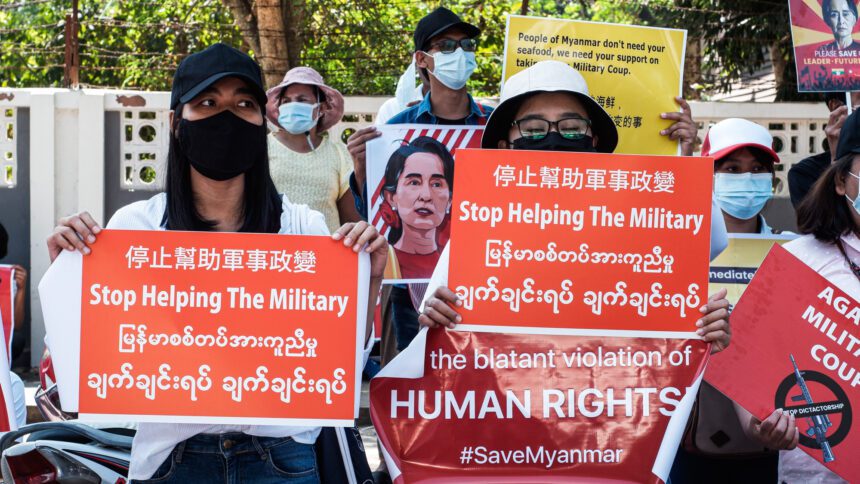In the complex world of international relations, principles often find themselves at odds. One such principle, the notion of non-interference, has been a cornerstone of the Association of Southeast Asian Nations (ASEAN). Deeply rooted in the concept of sovereignty, this principle emphasizes the absolute and everlasting power of a nation and has been enshrined in international accords, including the United Nations Charter.
However, the principle of non-interference faces challenges when it comes to human rights issues, particularly in the case of Myanmar. The research method employed unravels the complex relationship between the ASEAN non-interference principle and human rights, using a comprehensive approach that includes reading, analyzing, and proposing remedies to human rights-related concerns.
The concept of sovereignty, defined as complete control of a country, has evolved over time to emphasize universal human rights, dignity, and equality. The case of Myanmar serves as a poignant example of the challenges faced in addressing human rights within the framework of non-interference.
ASEAN’s non-interference principle has faced significant challenges in addressing the human rights crisis in Myanmar. The narrow interpretation of this notion and the extent to which human rights may be used as a reason to break the principle of non-interference are central issues.
The tension between respecting the sovereignty of a nation and the imperative to protect and uphold human rights has been brought to the forefront by the situation in Myanmar. This highlights the need for a nuanced understanding of sovereignty and non-interference.
The challenges and potential paths forward in reconciling these principles are critical. Principles like sovereignty and non-interference must not become barriers to addressing grave human rights concerns. The international community must find ways to balance respect for state sovereignty with the urgent need to protect human rights.
The exploration of ASEAN’s approach to Myanmar offers valuable insights and lessons for policymakers, scholars, and human rights advocates. The delicate balance between principles and human rights is not just a theoretical debate but a real-world challenge that requires thoughtful and compassionate solutions.
The human rights abuses in Myanmar have been well-documented, with reports of violence, displacement, and persecution. ASEAN’s non-interference principle has limited the ability to intervene, leading to a complex debate about the role of sovereignty and the responsibility to protect human rights.
The historical context of the non-interference principle, its interpretation, and application reveal challenges and contradictions, particularly in the context of human rights abuses. Potential ways forward consider how the principle of non-interference could be reconciled with the urgent need to address human rights abuses.
A nuanced understanding of the principle of non-interference is essential, recognizing that it must not be a barrier to addressing human rights concerns. A balanced approach that respects state sovereignty while recognizing the imperative to protect and uphold human rights is necessary.
The situation in Myanmar serves as a valuable reminder of the delicate balance between principles and human rights, requiring thoughtful and compassionate solutions.
Adapted from an academic study for a wider audience, under license CC BY-SA 4.0









